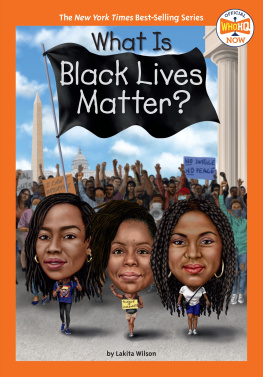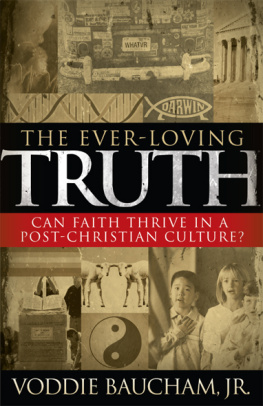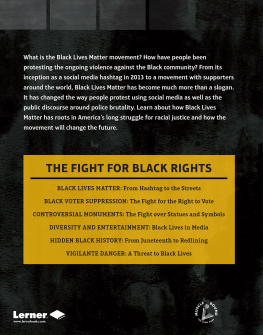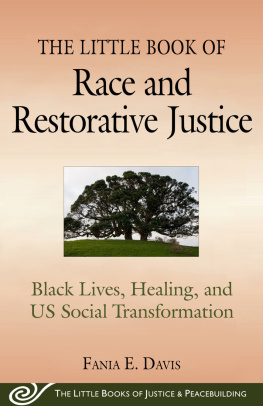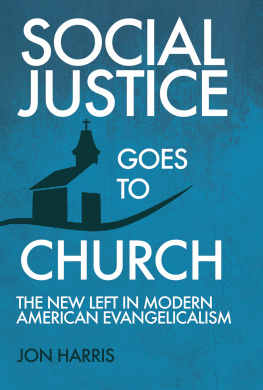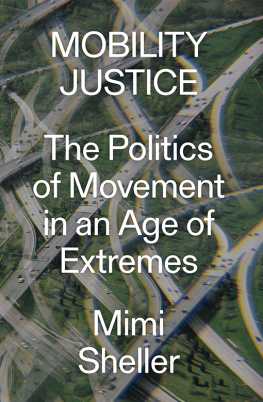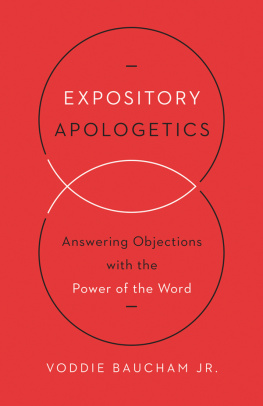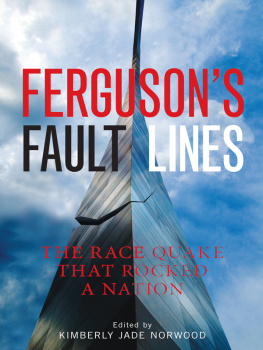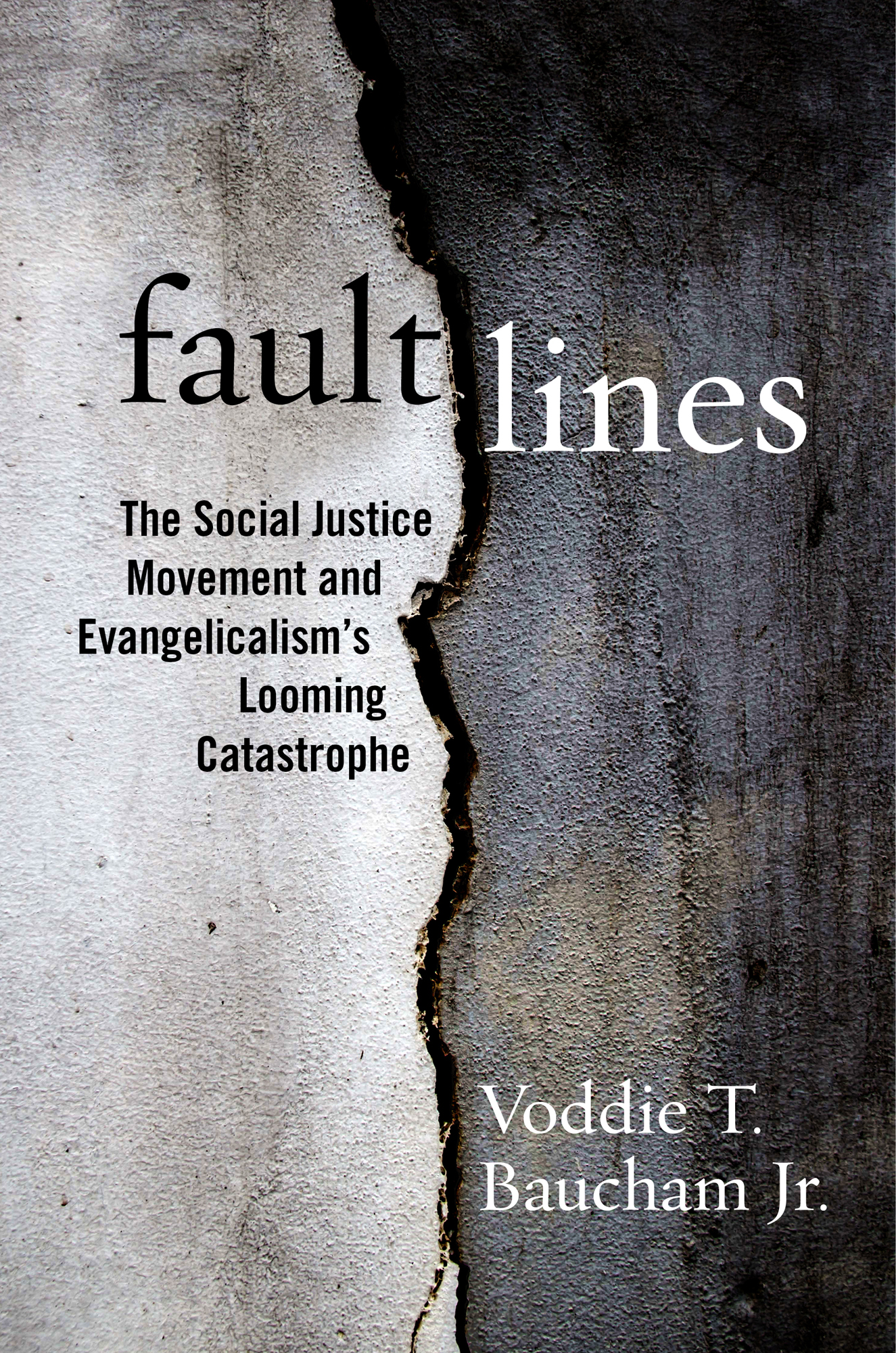Contents
Guide
Praise for
fault lines
This book by Voddie Baucham is a gift to the bride of Jesus. The hallways of history point to moments when the Church was called to stand firm. The call of the Christian is to contend for the faith once delivered to the saints (Jude 3). The difficulty with social justice is that it appears to be virtuous and it sounds Christian when its being employed by Christian leaders. However, social justice is one of the most devious and destructive movements the Church has faced in the last hundred years. Voddie Baucham, like a capable doctor, diagnoses the problem and in a skillful manner directs his readers to the biblical solution.
JOSH BUICE, Ph.D., pastor of Prays Mill Baptist Church in Douglasville, Georgia, and founder and president of G3 Ministries
Voddie Baucham has a gift for very clear writing about the complex history and terms and bottom-line relevance of Critical Race Theory. The weaving of the stories and the reporting with the solid and clear teaching is perfect. I always learn something when I read Voddie on this topic, even though I am a smart fellow and have been studying this stuff a while. His long interest in it and concern about it shows. Fault Lines is great. I shall be requiring it of my students.
MARK DeVINE, Ph.D., associate professor of divinity at Samford Universitys Beeson Divinity School
Just as under the guise of Liberation Theology Marxism was smuggled into the Catholic Church, so under the guise of Social Justice/Critical Race Theory, Marxism is being smuggled into evangelical churches across the country. Through a mixture of autobiography, incisive analysis, and a careful sifting of the statements made and positions taken by Critical Race theorists, Voddie Baucham exposes the anti-biblical, anti-God presuppositions upon which CRT is founded. This book is a must-read for all Christians, but especially for evangelicals who, in the name of justice and compassion, have been lured into supporting a movement that denies, in the most radical way, that we are all creatures made in the image of God but fallen into sin.
LOUIS MARKOS, Ph.D., professor of English and scholar in residence at Houston Baptist University and author of Atheism on Trial: Refuting the Modern Arguments Against God
Voddie Baucham has a long-established reputation for faithfulness and boldness, but this gracious, convictional, sometimes humorous, and always biblical book is an inestimable contribution to the Churchs consideration of race, ethnicity, and related ideologies. The theological work is precise; the personal narrative is arresting and moving; the cultural analysis is razor-sharp, and driven not by buzzwords but by data. Even as Baucham renders critique, he does so in love, with a spirit of upbuilding. This is a fantastically courageous book, and it will single-handedly shift the conversation, anchoring Christs blood-bought church in sound scriptural doctrine, not sinking sociological sand.
OWEN STRACHAN, Ph.D., associate professor of Christian theology at Midwestern Baptist Theological Seminary and author of the forthcoming book Christianity & Wokeness
Copyright 2021 by Voddie T. Baucham Jr.
All rights reserved. No part of this publication may be reproduced or transmitted in any form or by any means electronic or mechanical, including photocopy, recording, or any information storage and retrieval system now known or to be invented, without permission in writing from the publisher, except by a reviewer who wishes to quote brief passages in connection with a review written for inclusion in a magazine, newspaper, website, or broadcast.
All Scriptures are taken from THE HOLY BIBLE, ENGLISH STANDARD VERSION. Copyright 2001 by Crossway, a publishing ministry of Good News Publishers. Used by permission.
Salem Books is a trademark of Salem Communications Holding Corporation
Regnery is a registered trademark of Salem Communications Holding Corporation
ISBN: 978-1-68451-180-8
eISBN: 978-1-68451-201-0
Cover design by John Caruso
Library of Congress Control Number: 2020948290
Published in the United States by
Salem Books
An Imprint of Regnery Publishing
A Division of Salem Media Group
Washington, D.C.
www.SalemBooks.com
Books are available in quantity for promotional or premium use. For information on discounts and terms, please visit our website: www.SalemBooks.com.
It is the truth which is assailed in any age which tests our fidelity. It is to confess we are called, not merely to profess. If I profess, with the loudest voice and the clearest exposition, every portion of the truth of God except precisely that little point which the world and the devil are at that moment attacking, I am not confessing Christ, however boldly I may be professing Christianity. Where the battle rages the loyalty of the soldier is proved; and to be steady on all the battle-field besides is mere flight and disgrace to him if he flinches at that one point.
Elizabeth Rundle Charles
Thought Line
1989 was a banner year. Not because the World Wide Web was invented, the Berlin Wall came down, Nintendo came out with the Gameboy, and I met and married the woman of my dreams. Those were all big, but four other things happened in 1989 that were at least as bigthings that shaped the current war being waged in our midst.
Harvard Law professor Derrick Bell and some colleagues held a conference in Wisconsin, where Critical Race Theory was officially born. Bells protege, Kimberl Crenshaw, introduced the idea of Intersectionality in her paper Demarginalizing the Intersection of Race and Sex: A Black Feminist Critique of Antidiscrimination Doctrine, Feminist Theory and Antiracist Politics.
All of these publications have one thing in common. They are all the product of the same worldview: Critical Social Justice (CSJ), which is the subject of this book.
In order to understand CSJ, we must first understand where it came from. Rather than a glossary or a timeline, I want to give you what I call a thought line. Here is a very brief sketch of the development of the ideas this book will address.
The Roots of CSJ
Karl Marxs Conflict Theory
German philosopher Karl Marx was the leading architect of the most dominant school of thought within sociology, known as Conflict Theory. Marx viewed society as a group of different social classes all competing for a limited pool of resources such as food, housing, employment, education, and leisure time.
Antonio Gramsci and Hegemony
Simply put, hegemony is what takes place when a dominant group imposes its ideology on the rest of society: thus social control is achieved through conditioning rather than physical force or intimidation.
Italian Marxist Antonio Gramsci developed this concept to explain how domination and control are maintained not only through coercion, but also through the voluntary consent of both the oppressed and their oppressors to maintain the status quo. Gramsci redefined hegemony as a complex interlocking of political, social, and cultural forces
Frankfurt School and Critical Theory
After the Marxist revolution failed to topple capitalism in the early twentieth century, many Marxists went back to the drawing board, modifying and adapting Marxs ideas. Perhaps the most famous was a group associated with the Institute for Social Research in Frankfurt, Germany, which applied Marxism to a radical interdisciplinary social theory. The group included Max Horkheimer, T.W. Adorno, Erich Fromm, Herbert Marcuse, Georg Lukcs, and Walter Benjamin and came to be known as the Frankfurt School.


